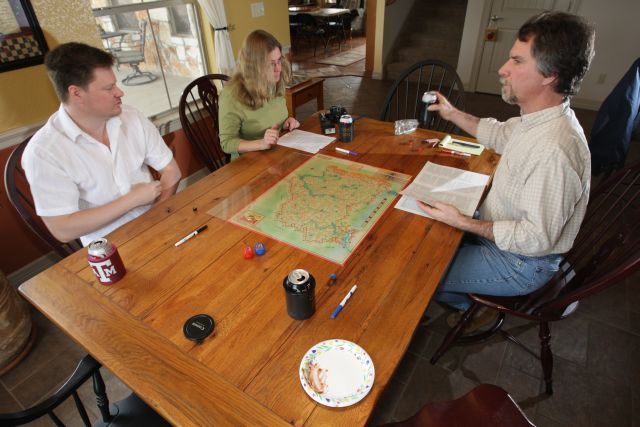
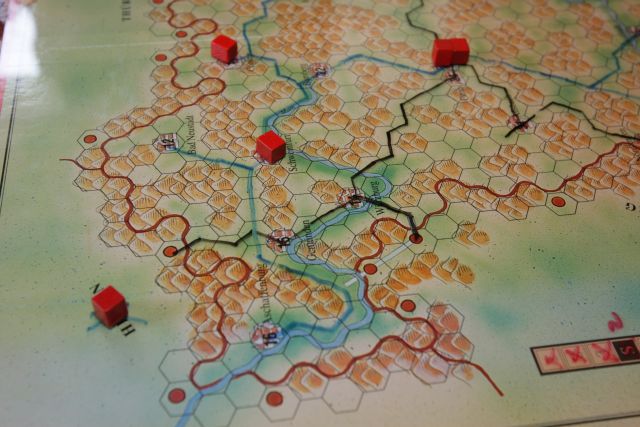
Ed pulled out Dampfross, a old (25 year old) train game. This game uses dice in a number of ways. The first way was somewhat useless. The start player rolls a six-sided die and builds that long of rail. Everyone else builds one after the other and then play passes to the left. This continues until all but three cities have been connected. The first player to connect to any city gets 6 dollars.
Next was the random and painful part of the game. Two cities are picked and a race is run from one to the other. Everyone who joins the race rolls two dice and moves their train that many spaces. So, you had better roll well or miss out on any rewards. The most painful aspect of this game is that it is possible that both the start and end cities will be your own and very close together. Other people who use your track only pay 1 dollar per hex up-to a maximum of ten. So, if the cities are 3 hexes away and two other people join, it is possible that you can lose the race and receive 6 dollars, the second place person will receive 7 dollars, and the first place person will receive 17.
This actually happened three times in our game to Dave. Another slightly less painful occurance is if there is a track where two people have to pay equal amounts (or even relatively equal) to run the race, then it is random whether you win or the other person wins. This happened to me a couple of times. And it sucks because the vast majority of the track was owned by me.
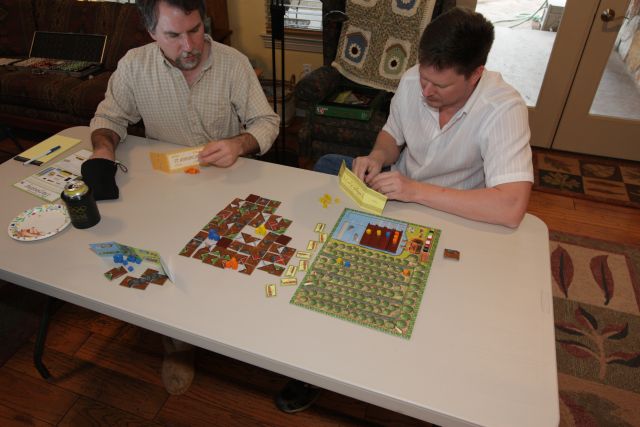
Next up was Darjeeling, which was a game I wanted to try at BGG.con. I was glad to try it at Ed’s since a couple of people in my group are against playing it again. I liked the first playing of it. It seems like a good lunchtime game candidate.
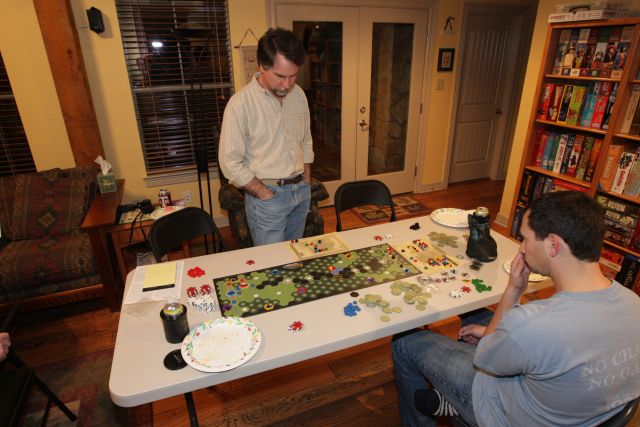
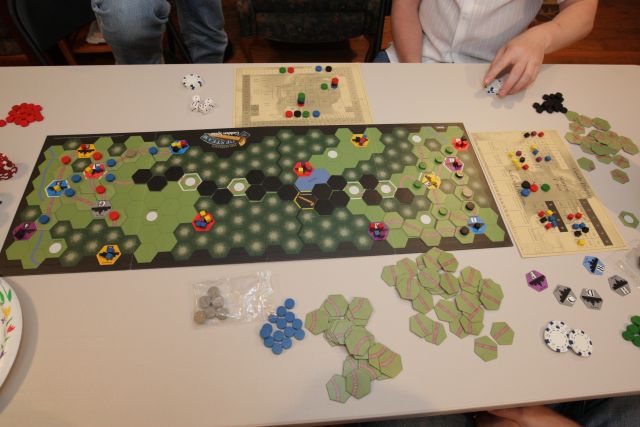
John expressed interest in playing this team version of Age of Steam. So I did everything possible to make this happen. Including getting John to walk off the start up of Hamburgum. After reading the rules, Ed and I decided to be on opposite teams and each take one of the other newbies as their teammate. However, it seems that we misunderstood how the teams were formed. Because Ed (who started third) chose to build track on the same side that I had made us partners.
We played half the game before we noticed this mistake. Here I was helping John out by giving him advice and not taking Urbanization from him. I was also hosing Ed at every opportunity.
I made a critical error during this game. I noticed that Dave was within striking distance of Promontory. But it was through three mountain hexes and therefore expensive. I told Ed this but we both ignored it and continued playing. What we should have been doing was delivering cubes to cities along the main route. This would have connected us to Promontory.
I think Dave did the wrong thing by ending the game without making sure he would win. John had built much more track than he did thanks to owning all of the track along the main route. This gave him the win.
